Is your dog eye discharge normal or abnormal? What you need to know
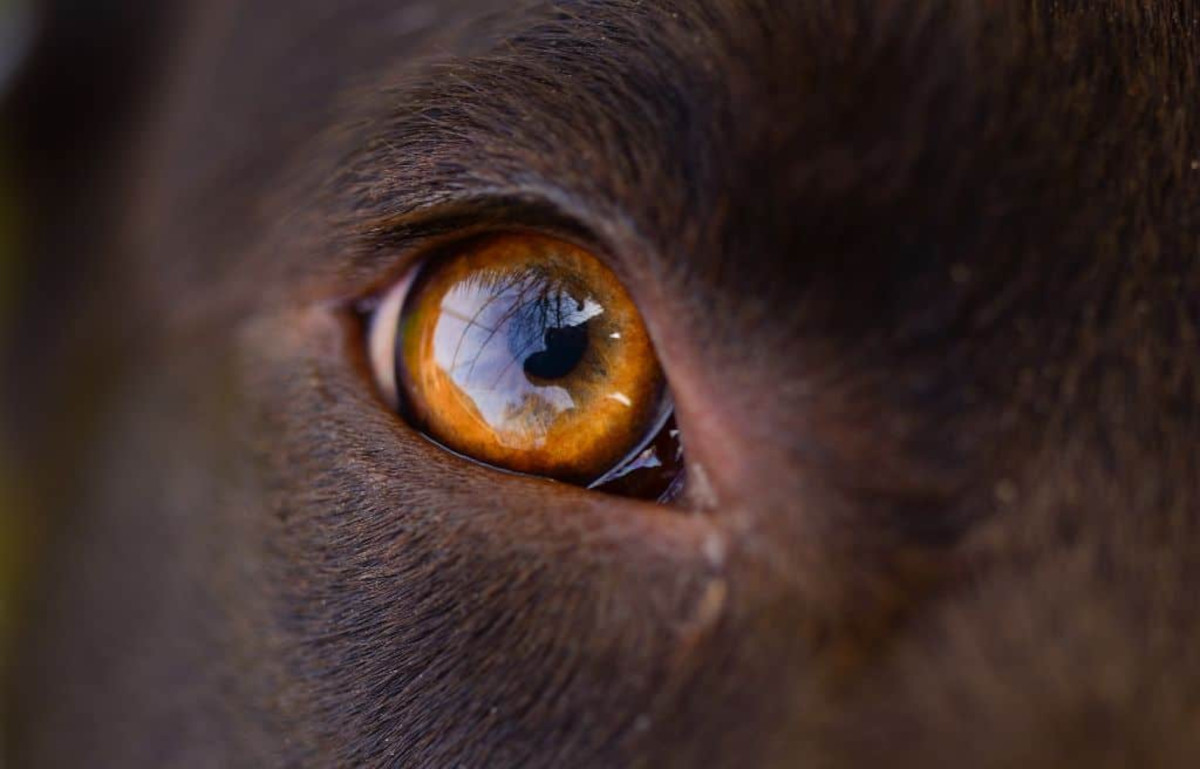
Dog Eye Discharge
Is your dog eye discharge normal or abnormal? Dog eye discharge may be a problem. Then again, it might not be.
Eye discharge can be a symptom of a more serious underlying cause. Or it can simply be a result of your dog being mildly allergic to something they got a little too excited about interacting with.
Whether your dog has eye boogers, a certain colour of eye discharge or runny eyes, in this article we will take a look at what you should do.
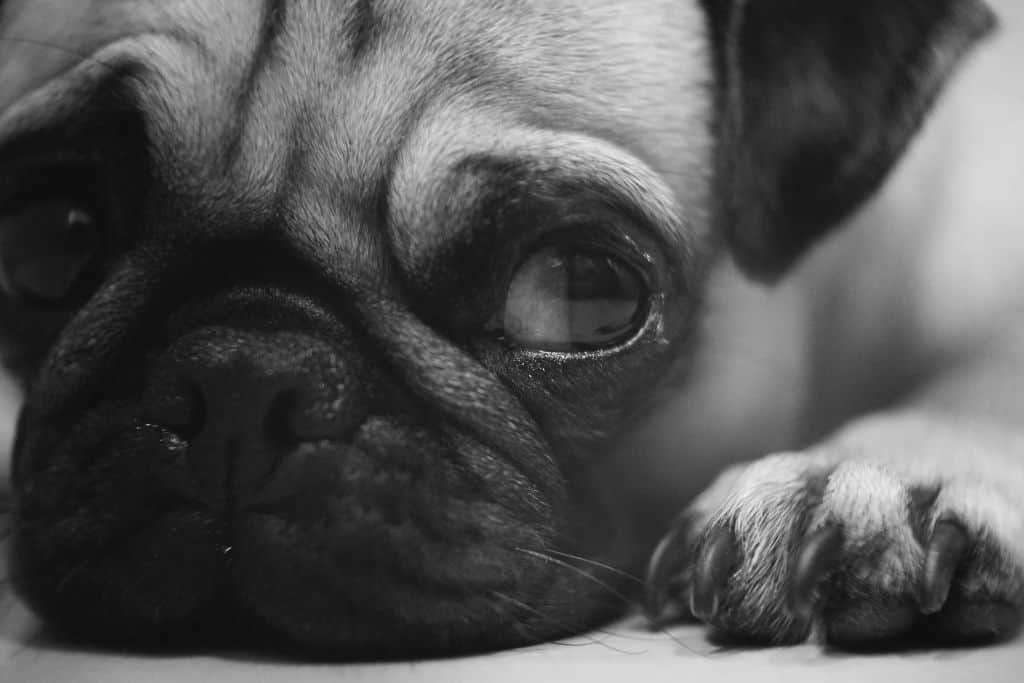
Common causes of dog eye discharge
Having runny eyes or a specific type of eye discharge is not usually a specific indication of a particular problem.
Some of the most common causes of eye discharge in dogs include:
- Ulcers
- Conjunctivitis (pink eye)
- Keratoconjunctivitis sicca (KCS or dry eye)
- Entropion (eyelashes rubbing on the eye)
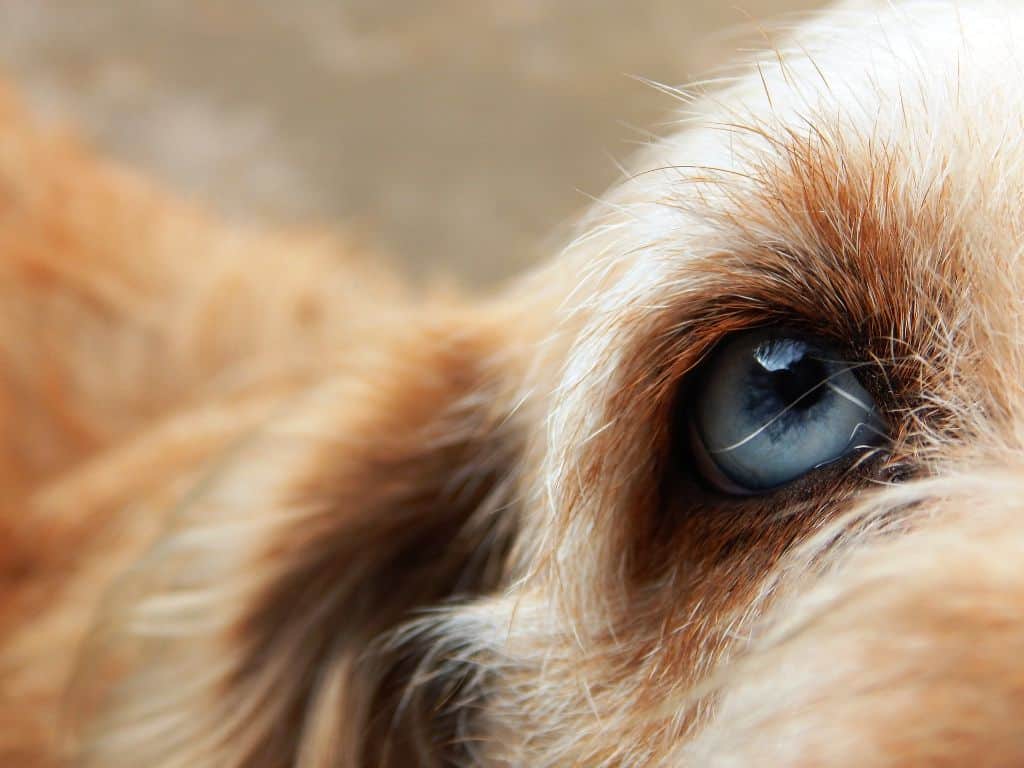
Types of eye discharge in dogs:
Some of the most common types of dog eye discharge are:
1) Runny eyes in dogs
A dog’s eye will produce tears fairly constantly. This is part of their normal healthy function. Tears make sure any stray particles get washed out as well as nourish the eye.
That said, excessively runny eyes in dogs (technically called epiphora) can be the result of a large number of underlying conditions. Some of these are not very serious. Others can be.
If your dog’s eyes are runny, but they do not seem to be damaged and he or she does not seem to be in any discomfort, it might be worth simply watching the situation. They might just have run through or past something which disagrees with them.
If tearing persists or develops to incorporate redness or other symptoms, consult your Vet.
Some of the most common causes of runny eyes are:
- Being of a specific breed with prominent eyes or rolled-in eyelids
- Allergies
- Irritants or foreign bodies in the eye
- Corneal damage
- Glaucoma
- Blocked tear ducts
2) Dog eye boogers
Whatever you choose to call them – though dog eye boogers is one of the most common terms – here were are referring to the crusty bits which sometimes appear in the corners of your dog’s eyes.
A small amount of this is usually normal. This is where the tear ducts are positioned and it only takes a little bit of oil, mucus, dust or dried tears to cover them over.
As long as you can easily clean your dog’s eye boogers away with a damp cloth and they are not showing any signs of discomfort or redness, they are almost certainly fine.
3) Dog green eye discharge and yellow discharge
Now we are starting to enter potential illness territory.
But dog green eye discharge does not necessarily mean they have an eye infection. A common cause, especially in puppies, is repeated vaccinations in a short space of time. This means a knee-jerk reaction of antibiotics is not necessarily the solution.
That said, a dog eye infection does usually result in a green discharge. The underlying cause might actually be damage the eye itself has taken. Or it might be that your dog’s immune system has been compromised by a more serious illness.
This means that whenever you notice your dog is suffering from a green or yellow eye discharge, consult your Veterinarian.
4) Dog eye brown discharge
If your dog has white or pale fur, you might notice a brown stain develop around their eyes.
This is because a dog’s tears contain a substance called porphyrin, which becomes a pigment of this hue when exposed to air and allowed to dry.
If your dog is not in any discomfort from this, all you need to do is:
- Try to wipe their eyes regularly. This will give the porphyrin no time to dry and stain their fur.
- You can also get a basic nutritional supplement (antibiotic-free) which reduces tear staining over time.
Bear in mind that the already-discoloured fur will take a great deal of time to grow out.
Only if your dog looks to be in pain or discomfort or you start to notice redness around their eyes, should you visit your Vet.
5) Dog eye discharge – white or grey mucus
A thicker white or grey mucus is one of those times where you will want to take your dog to visit your Vet.
The KCS or “dry eye” which was mentioned earlier is a condition in which a reduced capacity to create tears supercharges mucus production. This leads to white dog eye discharge, inflammation and ulcers.
You need to make sure right away whether your dog has this condition as it can lead to blindness if left untreated. Your Vet will be able to diagnose it easily and treatment is usually successful.
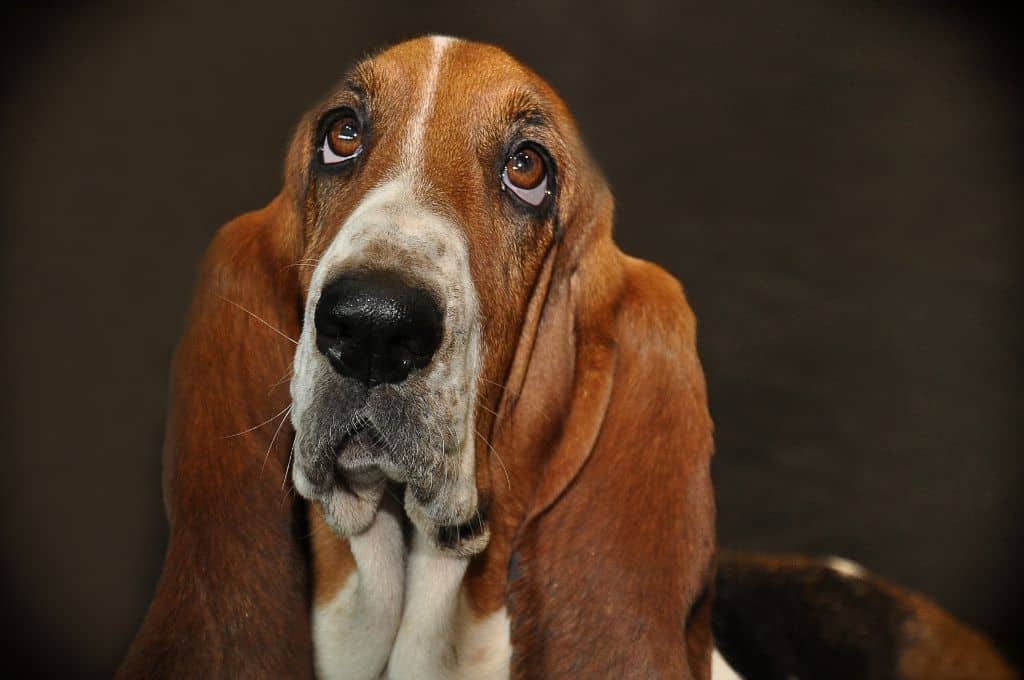
When to take your dog to the Vets
Is your dog eye discharge normal or abnormal? Any time you have:
- A combination of dog red eye and discharge on your hands
- Persistent discharge
- Change in the colour, quantity or consistency of discharge
- A dog who cannot open their eyes or eyes which have become cloudy or inflamed
- A dog who keeps rubbing or scratching their eyes
- Most importantly, any time when eye discharge is accompanied by another illness or abnormal appetites and energy levels
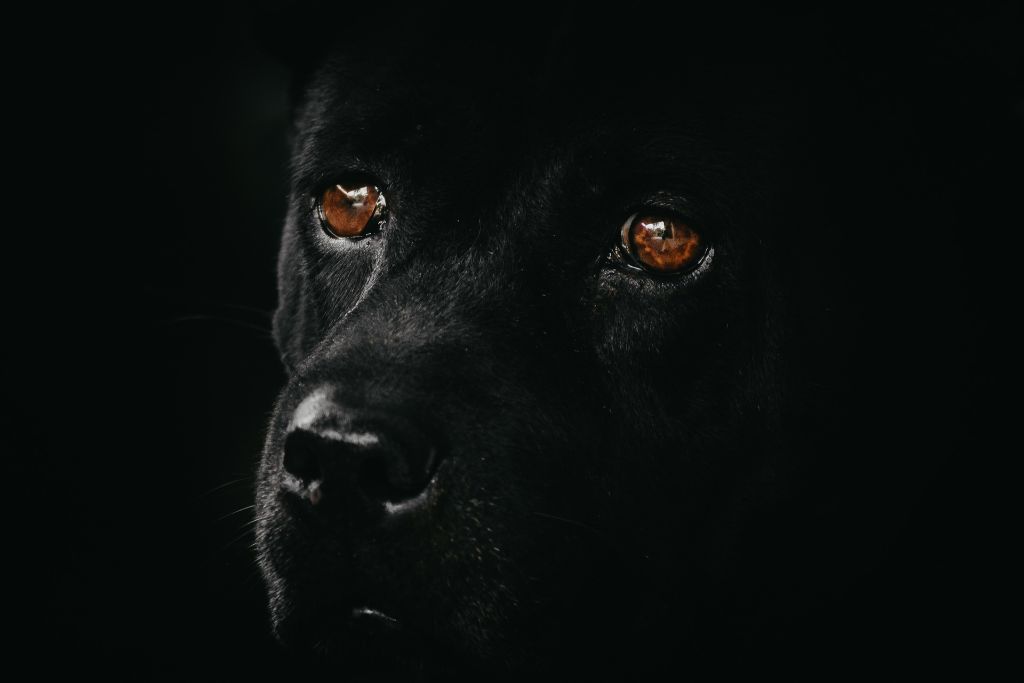
What happens at your Vet’s
Eye discharge in dogs can be relatively normal. Then again, it can be a symptom of a more serious underlying condition.
When visiting your Vet, it is always worth bearing the possibilities in mind.
From them needing a mild course of treatment to potential heartbreak leading to everything from a revelation of serious illness to an eventual need for dog euthanasia if their condition is terminal, anything could happen.
Of course, this last is not a decision you should make lightly. Only after consultation with your Vet, your friends and family and a deep personal introspection should you consider it.
But it just goes to show that if you are in any way worried about your pet’s health, you should always err on the side of caution and consult your Vet sooner rather than later.
Is your dog eye discharge normal or abnormal?
Tags: Dogs in pain, Pet Care, pet wellbeingCloud 9
To ensure accuracy, a professional vet has reviewed and verified the information presented in this article. It is important to note that when it comes to making decisions about euthanasia for your pet, there are no easy answers. It is always recommended to seek advice from your own veterinarian before making any decision.



